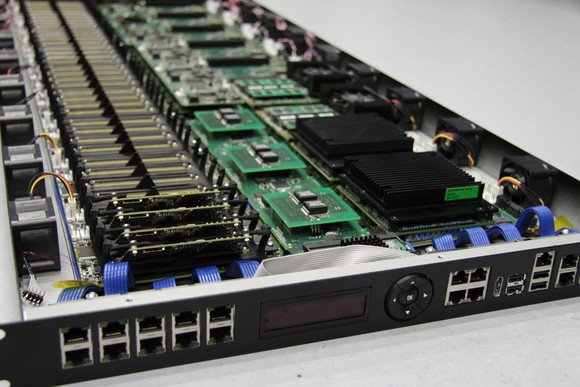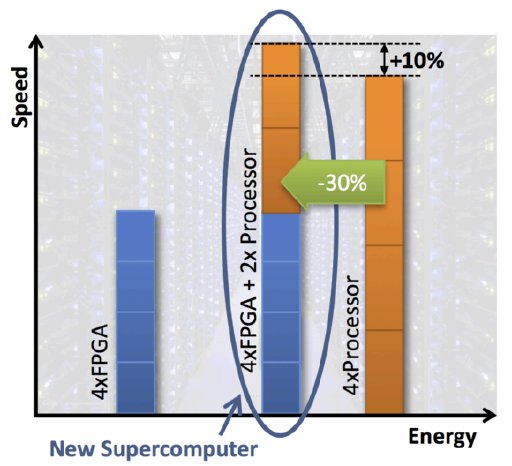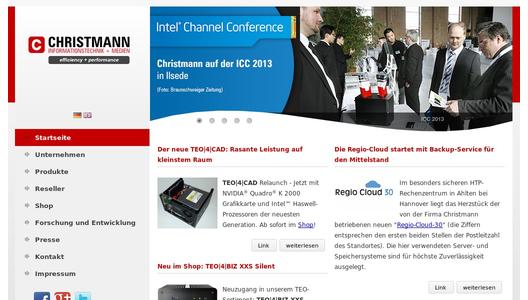FiPS aims to significantly increase energy-efficiency through a smart combination of alternative processors such as ARM smartphone processors, 3D graphics chips, re-configurable FPGA hardware, or even many-core architectures.
The project was kicked off in the second half of 2013 by a consortium that spans all of Europe, from Greece to Ireland and from France to Poland. Coordinated by the OFFIS - Institute for Information Technology (Germany), the project brings together hardware and software specialists from both high-performance and embedded computing communities. Christmann Informationstechnik + Medien GmbH, CoSynth GmbH & Co. KG and Bielefeld University (Germany) are in charge of the development of a new kind of modular server architecture able to seamlessly host various computing resources, which will be deployed at the Poznań Supercomputing and Networking Center (Poland). OFFIS and CEA LIST (France) are developing the related methodology helping the system designer to determine the ideal processor types for a given application in order to build the right heterogeneous computing machine. The resulting system will be put into practice on very high-demanding real-world applications by SOFiSTiK Hellas S.A. (Greece), Cenaero ASBL (Belgium) and the National University of Ireland (Ireland) with the goal to achieve the highest performance at the lowest power consumption.
The 3-year project is being sponsored with a total of about 3 million Euros through the 7th Framework Programme of the European Union.
FiPS aims at addressing the rapidly rising energy demand of today's supercomputing centers, as many of the most advanced research programs are depending on data centers hosting thousands of computers, the only way to quickly solve sophisticated problems (like daily weather forecast, advanced engineering, medical tomography analysis or even a simple search engine query like those on Google or Yahoo!). This amassment of computers is consuming plenty of electrical energy, and the demand for supercomputing is rising fast. Already 15% of our total electrical energy is required to power all the computers at home, at work and in data centers, and the number is growing rapidly.
A possible solution is to use heterogeneous computing architectures to optimize the performance/watt ratio by including smartphone processors, 3D graphic chips, reconfigurable chips (FPGAs) or many-core architectures. This is done by applying the well-known algorithm-architecture matching concept of embedded systems to the high-performance computing domain, as these alternative architectures may be better suited to particular parts of applications with respect to both performance and energy consumption compared to the traditional complex processors used in current supercomputers. The bulk of the computing time of advanced high-performance simulations is spent in a small number of very CPU-intensive sub-routines, many of which are simple enough to run on these alternative computation devices, reducing the required number of traditional high-energy, high-performance processors.
The FiPS project aims to build a new supercomputer combining traditional high-performance processors (for complex control-oriented and sequential computations) with more efficient alternative processors used for simpler or regular computations (where relevant). As the total number of processors increases, these new supercomputers will be faster while at the same time significantly reduce the overall energy consumption.
The challenge of building supercomputers from a heterogeneous network of processors (rather than a regular grid of identical processors) is to synchronize the various types of components: different computing devices have to be programmed in different programming models, and there is no easy way to know which processor type will finally run a computation job the fastest or at the lowest energy consumption. Moreover, all the processors working on different parts of the same problem will have to communicate their intermediate results and synchronize.
FiPS sets up a programming methodology that requires only a single programming language for developing the supercomputing program, which then determines the best-suited processor type and automatically translates the program into the programming language of this processor architecture. The user then receives a prediction of the program's speed and energy consumption. With this data, the implementation can be tweaked to increase performance and/or energy efficiency.
FiPS will not only make an ecological impact by reducing energy demand (and thus carbon dioxide emission), but also an economic impact by reducing the major energy costs. Supercomputing will become cheaper and thus affordable for many other applications and users.
More Information about the FiPS project



